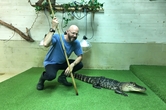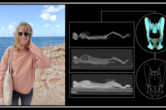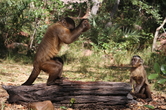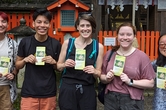Cultural style of higher affiliation artificially generated in marmosets
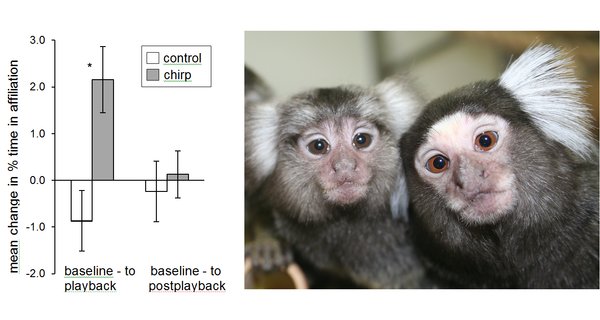
The study was conducted by CICASP’s Dr. Claire Watson as part of her PhD at the University of Stirling, supervised by Dr. Christine Caldwell, seconded by Prof. Hannah Buchanan-Smith.
Evolution of Culture
As humans, we differ in the way we do things, but also in the extent. One type of culture (qualitative culture) is forms of behavior that are present in some societies, but absent in others, for example, the hand-shake when meeting someone new. Another conception of culture (quantitative culture/cultural style) is variations in degree. For example, when two people talk together, in some cultures the typical distance between them is very short, while in others the gap is, in general, very much wider. The evolutionary origins of human culture can be better understood by investigating culture in nonhuman primates.
Potential traditions, group-specific behavioral differences of both qualitative and quantitative types, have been observed in wild primates. However, it is very difficult to determine whether such differences are truly cultural (spread socially), or whether they can be explained solely by within-group shared genetic tendencies, or between-group environmental dissimilarities. If it can be shown in controlled experiments that such behaviour patterns can be spread through social influence, this supports the assumed existence of culture in wild primates.
Novel approach
A huge number of empirical studies have been carried out to investigate transmission of qualitative culture. However, the recent study represents the first experimental study to look into the spread of cultural style within a species of nonhuman primate. An innovative method to examine cultural transmission experimentally – a playback paradigm – was trialed successfully.
The same authors have shown previously that affiliative (‘friendly’) calls made in neighboring social groups are associated with increased affiliation in marmosets. The new study involved simulating even more highly amicable marmosets, situated nearby, by playing a high rate of affiliative calls, for several hours a day. The amount of time marmosets spent in affiliative behaviour outside playback-hours was recorded. The increase in time spent in affiliation from baseline to outside playback-hours was larger for marmosets exposed to affiliative call playback than to control playback. This difference did not persist after all playback ended.
Results are consistent with cultural style having spread via auditory social contagion, through social influence of call playback. The findings support the existence of cultural style in wild primates.
Welfare: Enrichment
This study also demonstrated a novel potential welfare application. Playback of positive, affiliative, calls led marmosets to spend longer in affiliative behaviors, associated with positive welfare, with no increase in behavioural indicators of negative welfare. Auditory playback of positive calls thus represents sensory and non-contact social enrichment for marmosets, with possibilities for use in other captive animals.
Click here to see the original open access article.
